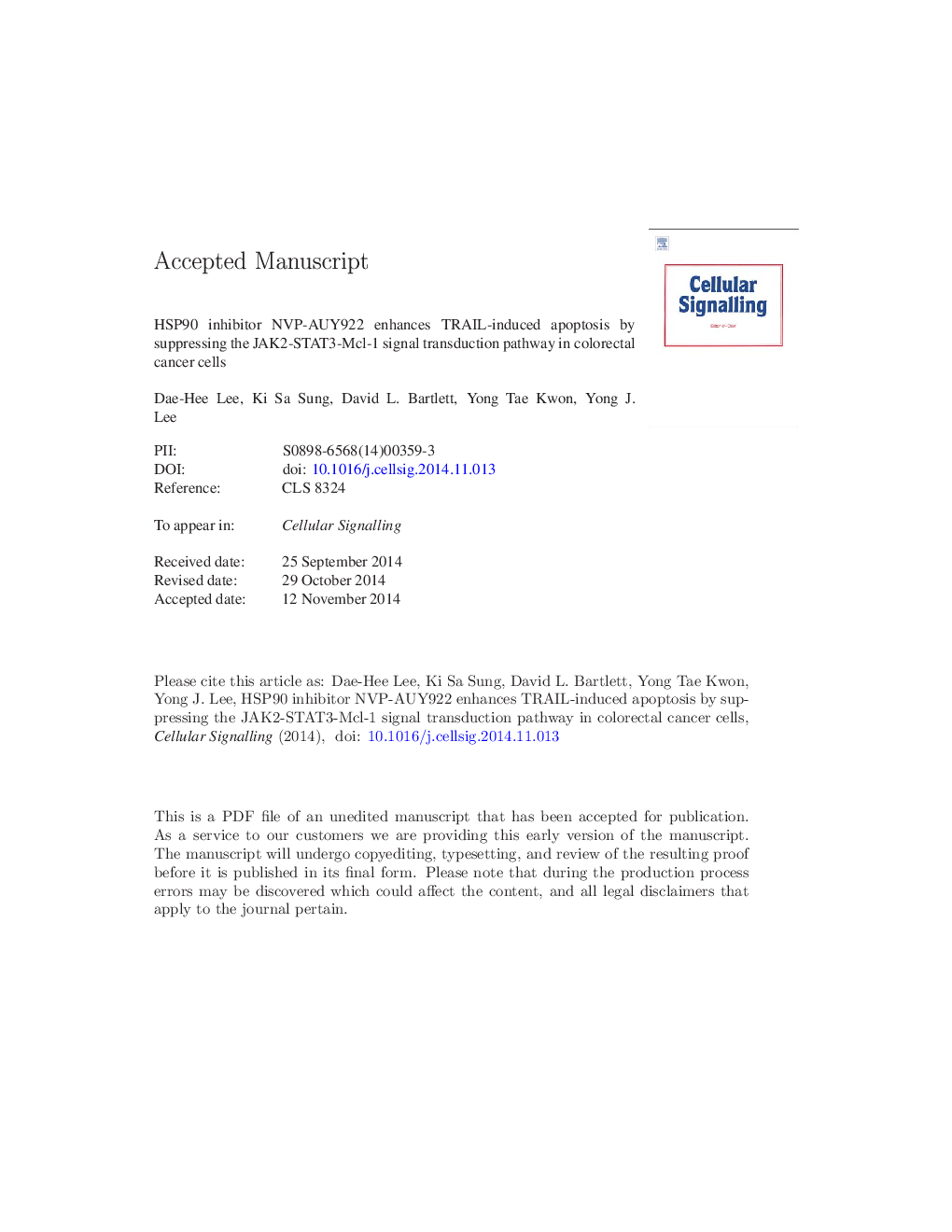| Article ID | Journal | Published Year | Pages | File Type |
|---|---|---|---|---|
| 10814876 | Cellular Signalling | 2015 | 48 Pages |
Abstract
TRAIL has been shown to induce apoptosis in cancer cells, but in some cases, certain cancer cells are resistant to this ligand. In this study, we explored the ability of representative HSP90 (heat shock protein 90) inhibitor NVP-AUY922 to overcome TRAIL resistance by increasing apoptosis in colorectal cancer (CRC) cells. The combination of TRAIL and NVP-AUY922 induced synergistic cytotoxicity and apoptosis, which was mediated through an increase in caspase activation. The treatment of NVP-AUY922 dephosphorylated JAK2 and STAT3 and decreased Mcl-1, which resulted in facilitating cytochrome c release. NVP-AUY922-mediated inhibition of JAK2/STAT3 signaling and down-regulation of their target gene, Mcl-1, occurred in a dose and time-dependent manner. Knock down of Mcl-1, STAT3 inhibitor or JAK2 inhibitor synergistically enhanced TRAIL-induced apoptosis. Taken together, our results suggest the involvement of the JAK2-STAT3-Mcl-1 signal transduction pathway in response to NVP-AUY922 treatment, which may play a key role in NVP-AUY922-mediated sensitization to TRAIL. By contrast, the effect of the combination treatments in non-transformed colon cells was minimal. We provide a clinical rationale that combining HSP90 inhibitor with TRAIL enhances therapeutic efficacy without increasing normal tissue toxicity in CRC patients.
Keywords
PBSSDSPARP-1TNFRPMITumor necrosis factor (TNF)-related apoptosis-inducing ligand (TRAIL)PAGENVP-AUY922polyacrylamide gel electrophoresisApoptosissodium dodecyl sulfatetumor necrosis factorTRAILtumor necrosis factor-related apoptosis-inducing ligandphosphate-buffered saline solutionRoswell Park Memorial Institute mediumwild typeHeat shock protein 90 (Hsp90)Propidium iodidepoly (ADP-ribose) polymerase-1
Related Topics
Life Sciences
Biochemistry, Genetics and Molecular Biology
Biochemistry
Authors
Dae-Hee Lee, Ki Sa Sung, David L. Bartlett, Yong Tae Kwon, Yong J. Lee,
